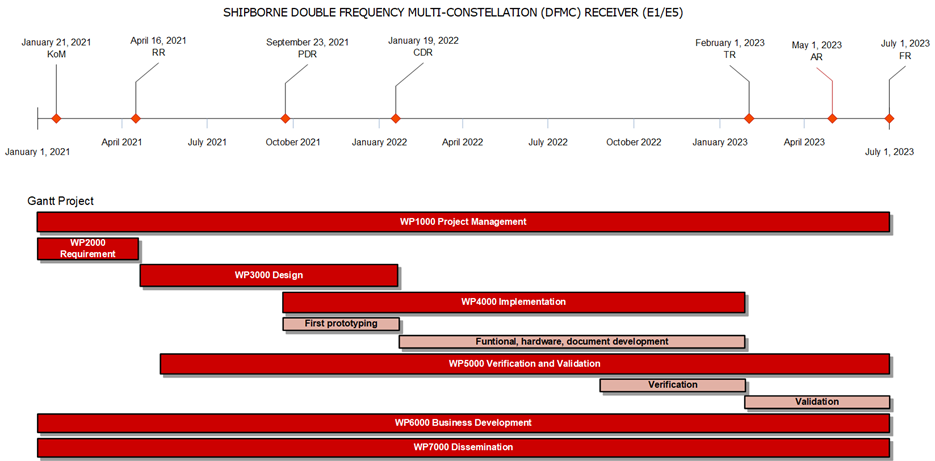The ASGARD project is a research project (under the Fundamental Elements call targets shipborne double-frequency receivers) focused on developing a multi-constellation and double frequency (E1/E5) maritime receiver that uses Galileo and that complies with the specifications IEC 61108-3 under the European MED WheelMark, and that at the same time complies with the international specifications of IMO (International Maritime Organization): MSC 401 (95) and MSC 432 (98).
Likewise, this receiver must implement the required algorithms to process Galileo-OS NMEA according to the specifications set by EC for this service. Galileo OS-NMA functionality will ease the use of the Resilient PNT concept in maritime navigation.
The receiver to be developed within this project is based on two already existing products:
- GMV product: PRESENCE2
- SAAB equipment: R5
The receiver will be tested:
- In the certification laboratory BSH and JRC to check the behaviour of the equipment according to IEC standards applicable to a maritime receiver associated to the use of Galileo and to the interfaces, display and alerts on they captain’s bridge.
- In a dynamic campaign of a boat.
- In a laboratory simulating a spoofing attack to see the behaviour of Galileo OS-NMA
ASGARD activities
ASGARD shipborne receiver will take benefit of all Galileo OS features (improved performance and robustness thanks to dual -frequency and OS -NMA capabilities), in compliance with the corresponding legal framework for maritime equipment at both EU and IMO leve.
A set of activities will also be carried out in the frame of the project to test and demonstrate the capabilities of the product, enabling the dissemination and business plan activities required to maximize the penetration of shipborne Galileo receivers in the corresponding market.
ASGARD objectives
ASGARD is divided into a set of objectives that define the complete scope of the project. They are:
- Development of DFMC Galileo shipborne receiver. Design and integration of the shipborne receiver, starting point.
- Type approval IEC 61108-3. Static and dynamic laboratory test campaign in the laboratory following IEC 61108-3 (Galileo) and IEC-61108-1 (GPS).
- Galileo OS-NMA implementation. OS-NMA verifies the authenticity of the Galileo navigation message.

